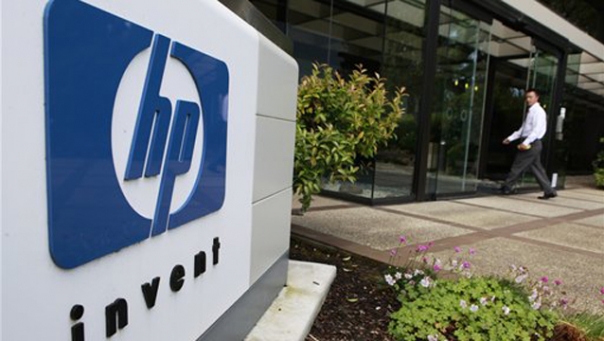The histories of the Stanford School of Engineering (where I work) and HP are closely intertwined. Most famously, when Bill Hewlett and David Packard were young guys, they borrowed $500 from Fred Terman, then Dean of the school, to start the company. There are at least three buildings in the Engineering School donated by Bill and Dave. Appropriately, they are the Terman building, the Hewlett building, and the Packard building.
The events over the past decade or so have led this once beautiful relationship to dim — nothing nasty has happened, it has just sort of faded along with the decline of HP's once vibrant innovative and humane spirit. Carly Fiorina got so mad at the Hewlett & Packard foundations that she changed the name of the company from Hewlett-Packard to HP — because these foundations opposed the merger she led between Compaq and HP. This dimmed the company's links to its founders, and indirectly, to Stanford. Moreover, the Compaq merger brought in many executives with no geographical or emotional ties to Stanford. The ties really faded under the Mark Hurd era as he had little emotional connection to Stanford, did major acquisitions like EDS in Texas that further scattered HP's geographical identity, and during his era of cost cutting, nastiness, and lack of emphasis on innovation, HP further lost its soul.
I know many former HP executives, managers, and engineers and this is the exact phrase the all seem to use to describe what happened. They talk about it almost as if it is a human death, uniformly emphasizing that the HP that exists today is not the company the worked for — many say they worked for Hewlett-Packard, not HP. Moreover, when I came to Stanford, HP was THE employer of choice in Silicon Valley for Stanford Engineering students– it is now viewed as an employer of last resort by most students.
As such, I was delighted to see the honesty and ambition expressed by HP's new CEO, Leo Apotheker, in this report:
“HP has lost its soul,” he said in an interview at Hewlett-Packard’s headquarters in Palo Alto, California, offering a glimpse of the vision he will outline in greater detail at an event on March 14 in San Francisco. “The first thing I wanted to do when I joined HP was listen to the people. The rank and file usually know about all the shortcomings.”
This is a dramatic change in behavior. I love that he is telling the turth and using the same term that everyone else does to describe HP. I wish Mr. Apotheker well and look forward to a day when, once again, the best and the brightest Stanford engineers are clamoring to work at HP. Perhaps Mr. Apotheker should change the name of the company back to Hewlett-Packard. Short of that, I suggest they remove the word "Invent" from the company signage — see the above sign at company headquarters in Palo Alto. They use this logo and slogan on all their buildings. As one former HP executive explained, once they put that word on the signs, she knew that HP's brilliant culture of innovation was fading fast. You don't see the word invent at Pixar, Apple, IDEO, or Facebook. They don't need to talk about it because they do it and it runs deep in their souls.
P.S. Check out Tom Stewart's great post at BNET on What HP's New Chief Needs Most.
